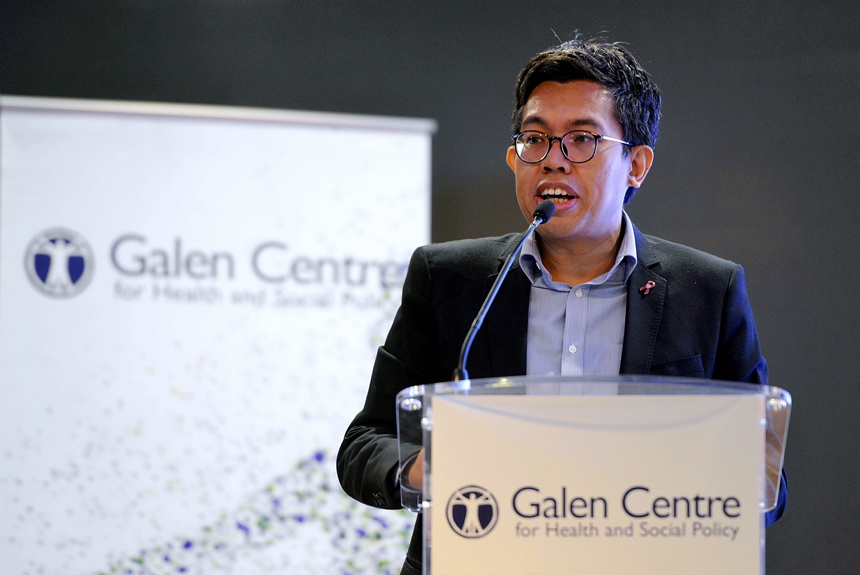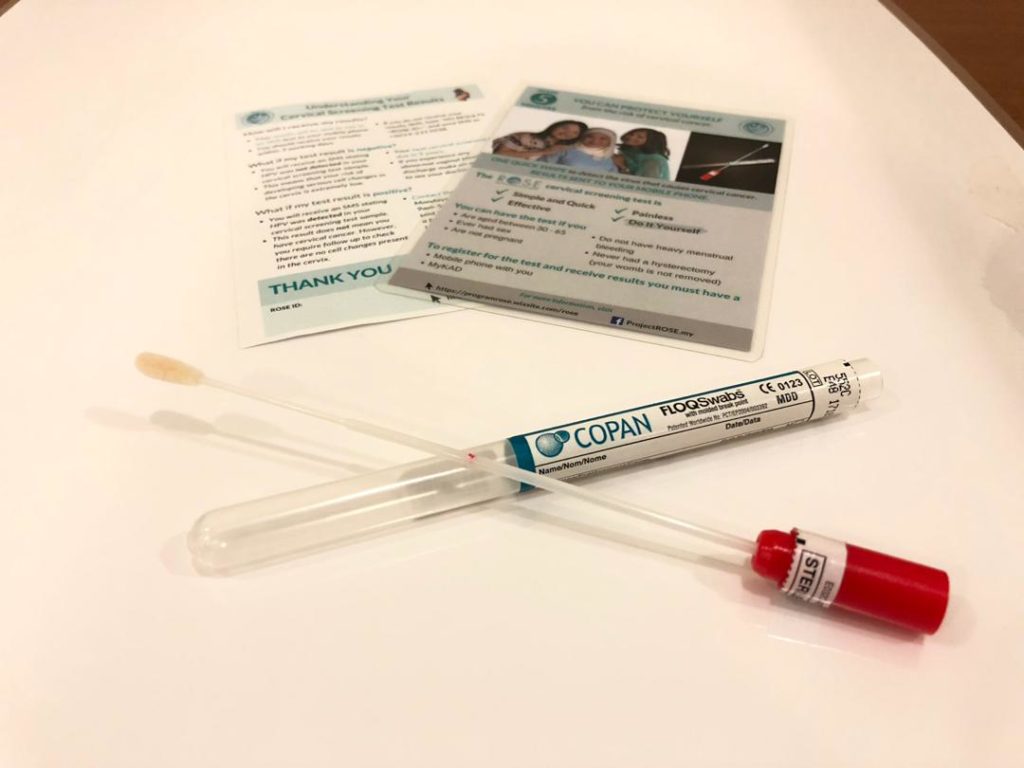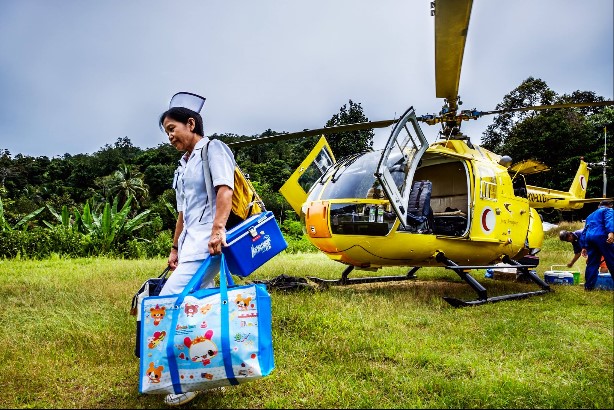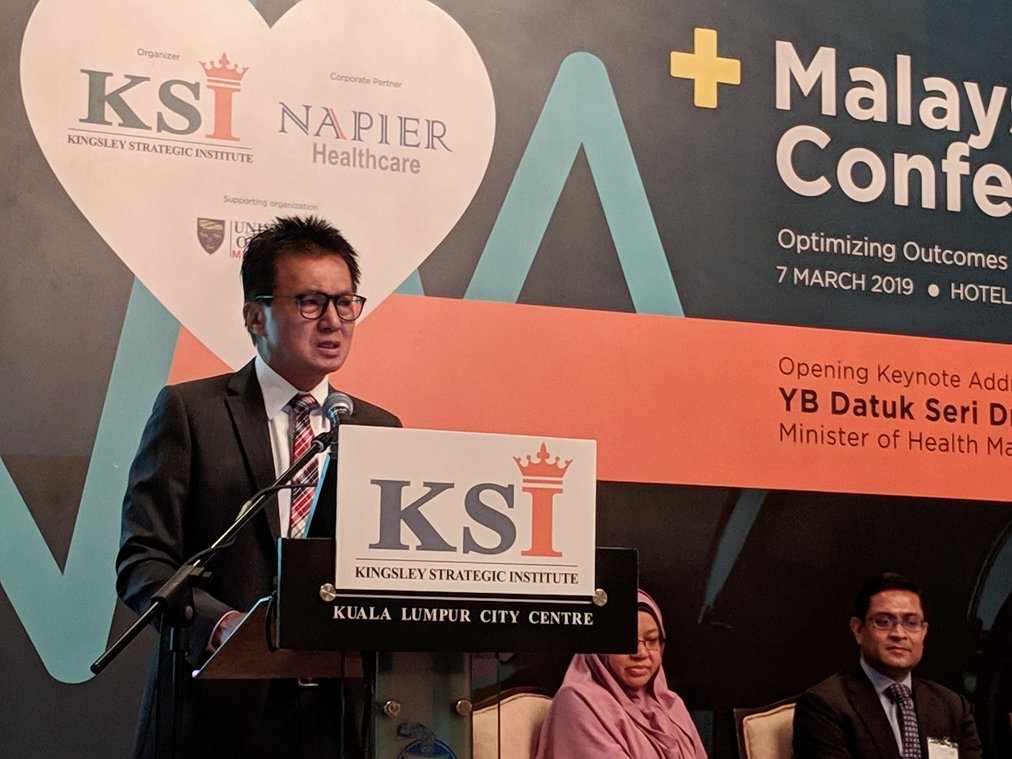KUALA LUMPUR, Oct 26 — The Ministry of Health (MOH) does not have the sole responsibility of ensuring a healthy society, said independent public policy and health care analyst Chua Hong Teck.
Thus, channeling a big portion of funding to MOH in the upcoming Budget 2022 may not necessarily improve the health of Malaysians as a whole. According to Chua, the health status of a nation is multidimensional, involving various ministries.
“We need good food, a pollution-free environment, a good housing system, and a work life balance to stay healthy,” Chua told CodeBlue, when contacted for his opinion on what Budget 2022 should focus on.
‘So channeling 4 or 5 per cent of GDP (gross domestic product) for health alone will not work because there are other ministries that are involved to ensure a healthy population in the country.”
When asked how the overall health status of a nation can be improved, Chua said: “The government should put health as its top priority and craft plans, policies, and programmes based on that main agenda, across all the ministries.”
The analyst said that Malaysians generally are not healthy, pointing to a large fraction of Covid-19 fatalities involving people with comorbidities.
“Many of them have had diseases before like obesity, heart problems and diabetes. This shows that before even Covid-19, Malaysians were not healthy.”
But Chua, who agreed on the necessity to focus on backlogged non-Covid cases, especially cancer, said that MOH should specifically allocate a budget to ramp up delayed diagnosis and treatments immediately.
“Our country’s health care system wasn’t prepared for a pandemic. There are many pending surgeries that should be carried out immediately. MOH should focus on that.
“NCDs must also be the priority of MOH as they are a big threat to form a healthy country,” Chua added.
Focus On Chronic Diseases, Continued Covid-19 Response

Azrul Mohd Khalib, head of the Galen Centre for Health & Social Policy, shared his hope for an increase in the health budget allocation by at least RM4 to RM6 billion in Budget 2022, compared to what was allocated for 2021.
“Possibly between RM35 to RM40 billion,” Azrul told CodeBlue.
“We are fully aware of the limitations and economic challenges faced by the 2022 budget due to the Covid-19 crisis, which might affect the allocation that is able to be provided. However, this is definitely not the time to under-invest in health.”
He called on the government to ensure sufficient equipment, funding, and support to health care personnel and health services to further enhance the Covid-19 response in the country.
“There should be no compromise in that respect. Covid-19 will continue to persist into 2022.”
At the same time, Azrul emphasised the need to focus on non-communicable diseases (NCDs) in parallel while strengthening the Covid-19 response.
He highlighted the significance of improving health literacy among the public, besides focusing on NCD preventive measures and curative interventions.
“New funding should be channeled into dealing with and responding to cancer, diabetes, cardiovascular diseases and the consequences of malnutrition.”
He noted that the incidence of various NCDs have and are expected to worsen due to various movement restrictions and lockdowns in the country from 2020.
“We need people to be healthy, be responsible for their own health and invest in their own wellbeing to prevent the onset of non-communicable diseases and be better prepared for medical emergencies such as catastrophic injuries.”
Co-Paying For Cancer Treatment

Besides that, Azrul said that forming a public-private-patient partnership to boost cancer treatment in the country was one of his wish lists for Budget 2022.
Through this partnership, he said, the government, private sector, and patients copay for cancer treatment to increase the availability and quality of existing cancer treatment, particularly those with advanced cancers.
“We suggest establishing a cancer fund, with RM50 million in seed funding for cancer treatment financing to encourage private sector ringgit to ringgit contribution,” said Azrul.
“We recommend, as a pilot programme, that the government earmarks an initial 5 per cent from the collected revenue from alcohol and tobacco taxes (estimated totalling 5.9 billion annually) to health promotion and treatment, focusing initially on diabetes and cancer.”
He believes this initiative will be able to support the sustainability of a cancer fund and upscaling of innovative programmes, or fund crucial lifesaving treatment.
Fund Separate Health Care Plans For Sabah, Sarawak

Furthermore, Azrul mentioned that the government should identify a clear and separately funded plan for health care in Borneo states that grant a limited amount of autonomy for Sabah and Sarawak to manage their own health needs, including infrastructure development and recruitment of skilled health care workers.
“The Covid-19 outbreak in East Malaysia, especially in Sabah, highlighted the state of health care in Sarawak and Sabah which continue to need urgent attention and investment by the government.
“Many long standing essential issues such as maternal health service coverage and even primary care remain woefully inadequate. People are clearly being left behind.”
Finally, Azrul also expressed his wish for the government to increase excise duties on tobacco products, especially cigarettes, which have been frozen since 2015.
“It is time for those cigarette taxes to be raised by 61.8 per cent from the existing retail price, to RM 24.90 per box.”
Azrul said that a raise in tobacco tax would potentially contribute RM3.36 billion in revenue for the government: “This would represent a 30 per cent increase to what was collected in 2019.”
“Since the government is adamant to regulate and not ban vape and e-cigarettes, it should impose a similar tax framework for such products similar to that of alcohol and tobacco products.”








